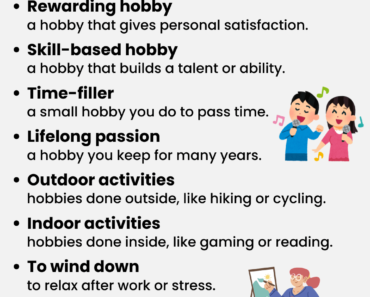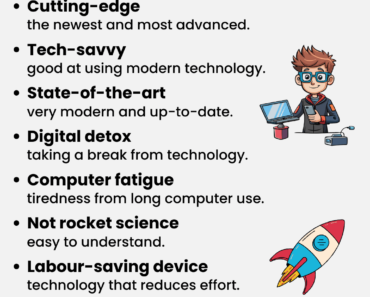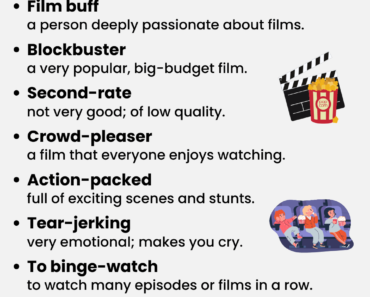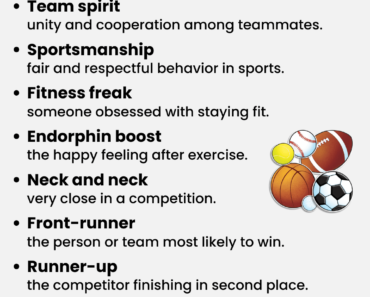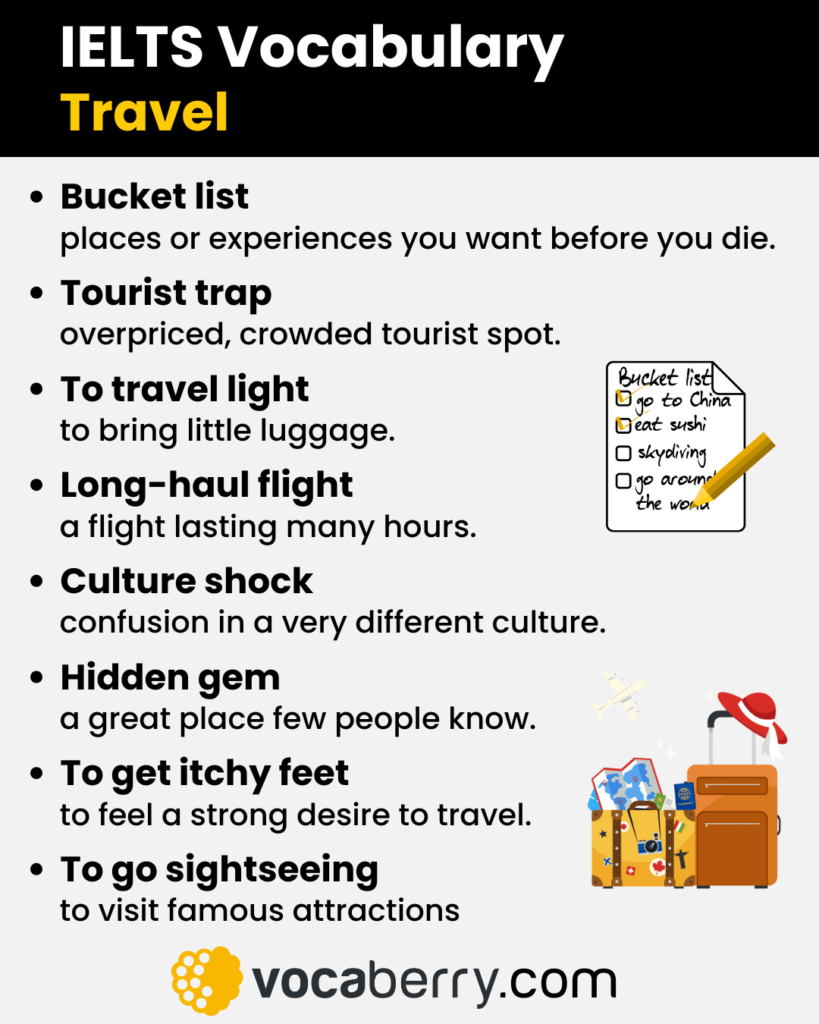
Travel is another common topic in the IELTS Speaking test. Examiners often ask about your travel experiences, your favourite places, or why people enjoy travelling. In this guide, you’ll find useful IELTS vocabulary for travel with clear definitions, followed by IELTS Speaking Part 1, Part 2, and Part 3 questions with sample answers.
IELTS Vocabulary for Travel
Here is some useful IELTS vocabulary for talking about travel with clear definitions. These words and phrases will help you give better answers in the IELTS Speaking test.
- Bucket list – a list of places or experiences you want before you die.
- Wanderlust – a strong desire to travel.
- Backpacking – travelling cheaply with just a backpack.
- Budget travel – travelling with little money.
- Luxury travel – expensive, high-comfort travel.
- Tourist trap – a crowded, overpriced place aimed at tourists.
- Hidden gem – a place not many people know about but worth visiting.
- Local cuisine – traditional food of the place.
- Scenic route – a road or path with beautiful views.
- Cultural immersion – experiencing daily life like locals.
- Travel itinerary – a detailed travel plan.
- Jet lag – tiredness after long flights across time zones.
- Long-haul flight – a flight lasting many hours.
- Short break – a quick holiday, usually a weekend.
- Staycation – holiday spent at home or nearby.
- To travel light – to bring little luggage.
- All-inclusive – hotel including meals, drinks, and activities.
- Self-catering – accommodation where you cook your own meals.
- Youth hostel – a cheap place for young travellers to stay.
- Guided tour – trip led by a professional guide.
- Souvenir – something bought to remember a trip.
- Travel insurance – protection against travel problems.
- Culture shock – feeling confused in a very different culture.
- Digital nomad – someone who works online while travelling.
- Globetrotter – someone who travels a lot.
- Red-eye flight – late-night flight arriving in the morning.
- Adventure travel – exciting trips like hiking, diving, safaris.
- Eco-tourism – responsible travel that protects the environment.
- Overtourism – when too many visitors negatively impact a place.
- Unspoiled destination – a natural place not damaged by tourism.
- Package holiday – a trip with flights, hotel, and meals included.
- Hop-on hop-off bus – a sightseeing bus with flexible stops.
- Once-in-a-lifetime experience – a unique or rare travel experience.
- In the middle of nowhere – a very remote place.
- Hordes of tourists – large crowds of tourists.
- Tourist attractions – popular places that tourists visit.
- Red tape – official rules or bureaucracy that slow down travel.
- Peak season – the busiest and most expensive time for travel.
- Off-season – the quieter, cheaper travel period.
- Out of season – travelling outside the busy holiday period.
- On the go – travelling or moving around constantly.
- Duty-free shopping – buying goods without paying tax at airports.
- Armchair traveller – someone who travels through books or media.
- Travel companion – a person you travel with.
- Round-trip ticket – a return flight.
- One-way ticket – a single flight with no return.
- Stopover / layover – a short stay between connecting flights.
- Jet-set lifestyle – a glamorous life of frequent international travel.
- Visa requirements – official permissions needed to enter a country.
- To miss a connection – to miss your next flight or train due to delays.
- To get away from it all – to escape daily stress by travelling.
- To broaden your horizons – to expand knowledge and experiences.
- To immerse yourself in a culture – to deeply experience a new culture.
- To travel on a shoestring budget – to travel with very little money.
- To soak up the atmosphere – to fully enjoy the mood of a place.
- To get away from the hustle and bustle – to escape city noise and crowds.
- To be bitten by the travel bug – to become very eager to travel.
- To take the scenic route – to choose a path with beautiful views.
- To sample local delicacies – to try traditional or unusual local foods.
- To wander aimlessly – to explore a place with no fixed plan.
- To go sightseeing – to visit famous attractions
- To go off the beaten path – to explore less touristy, unique places.
- To get itchy feet – to feel a strong desire to travel or move.
- When in Rome – follow local customs when in a new place.
IELTS Speaking: Travel Questions & Answers
In this section, you’ll find IELTS Speaking Part 1, Part 2, and Part 3 questions on travel with sample answers. These examples show how the travel vocabulary can be used in your responses during the test.
IELTS Speaking Part 1 – Travel
Do you like travelling?
Yes, I really enjoy travelling. It gives me the chance to broaden my horizons and experience different cultures. Even a short weekend getaway or a short break can feel refreshing and help me escape the hustle and bustle of daily life.
Do you prefer travelling alone or with others?
I usually prefer travelling with friends because we can share experiences, split costs, and create memories together. For example, doing group activities like a guided tour or exploring a hidden gem feels more enjoyable when I’m not alone.
What kind of places do you like to visit?
I like visiting places that are a bit off the beaten path because they’re usually less crowded and more authentic. I also enjoy destinations where I can try the local cuisine and really immerse myself in the culture.
How often do you go on holiday?
Not very often, maybe once or twice a year. Sometimes I just take a staycation or a short break nearby, but when I can, I go abroad. I try to travel out of season because it’s cheaper and there are fewer hordes of tourists.
Do you usually plan your holidays in detail?
Yes, I like making a travel itinerary so I don’t waste time deciding what to do. But I also leave some free time to wander aimlessly or soak up the atmosphere, because sometimes the unplanned moments are the best.
Have you ever had problems while travelling?
Yes, once I missed a connection because my first flight was delayed. It was stressful, but my travel insurance covered the extra costs. Since then, I’ve always made sure to check visa requirements and keep some extra time for stopovers.
IELTS Speaking Part 2 – Travel Cue Card
Describe a memorable trip you have taken.
You should say:
- where you went
- who you went with
- what you did there
- and explain why it was memorable.
Sample Answer:
One of the most memorable trips I’ve ever taken was a backpacking holiday across Italy a couple of years ago. I had always dreamed of visiting Europe, so I finally decided to tick it off my bucket list. I went with two close friends from university, and we planned everything ourselves instead of booking a package holiday.
We tried to travel light, carrying only backpacks, which made it much easier to move from city to city. Our travel itinerary included Rome, Florence, and Venice, but we also tried to go a bit off the beaten track to explore smaller towns that weren’t crowded with hordes of tourists. In Rome, we visited famous tourist attractions like the Colosseum and the Vatican, but the highlight for me was simply wandering through the narrow streets and stopping to sample local delicacies such as authentic Italian pasta and gelato.
Of course, it wasn’t always smooth. We faced a bit of culture shock at first, especially with the transport system, and we almost missed a train because of confusing red tape at the ticket office. But those challenges actually made the trip more interesting and taught us how to adapt quickly.
What I loved most was the sense of cultural immersion. We stayed in small youth hostels, met other travellers from around the world, and even joined a guided tour in Venice. The trip really helped me broaden my horizons, and I felt it was a true once-in-a-lifetime experience. Looking back, it wasn’t just a holiday, it was a journey that boosted my confidence and gave me unforgettable memories.
IELTS Speaking Part 3 – Travel Discussion
IELTS Speaking Part 3 questions about travel often ask you to compare different types of journeys, discuss the benefits of travelling, and give opinions on tourism and cultural exchange.
Why do people like to travel to other countries?
People usually travel abroad to broaden their horizons and experience life in a new culture. It’s not just about visiting tourist attractions, but also about trying the local cuisine and learning how people live day to day. Some travellers prefer staying at all-inclusive resorts for comfort, while others go for adventure travel or eco-tourism to make the trip more meaningful. In the end, I think people travel to feel inspired and to create lasting memories.
Do you think travel today is easier than in the past?
Yes, it’s definitely easier now. With technology, we can book flights, hotels, and even guided tours online in just a few minutes. Budget airlines have also made long-haul flights and short breaks much more affordable than before. Of course, travellers still face issues like jet lag or delays, but overall, travel today is faster, cheaper, and far more accessible than it used to be.
What are the disadvantages of tourism for a country?
Tourism can bring serious problems if it isn’t controlled properly. Overtourism can damage the environment and make life harder for locals. Some places turn into tourist traps, where everything is overpriced and culture is lost. Also, when people choose cheap package holidays, the money often goes to big companies rather than small local businesses. So while tourism can create jobs, it also needs careful management to avoid long-term harm.
Do you think young people and older people travel differently?
Yes, I think there are big differences. Young travellers often enjoy backpacking, staying in youth hostels, and exploring places off the beaten path. They usually travel on a tight budget and want adventure. Older travellers, however, are more likely to book package holidays or cruises, where everything is organised for them. They prefer comfort and relaxation instead of being constantly on the go.
How might travel change in the future?
In the future, I think more people will focus on sustainable travel. Many already prefer eco-tourism and seek out unspoiled destinations instead of crowded cities. At the same time, governments may introduce stricter visa requirements or add more red tape to control mass tourism. Technology will also shape the way we travel, with more people becoming digital nomads who can work from anywhere. Travel will still be popular, but I think it will become more responsible.
More IELTS Vocabulary Topics
If you found this lesson useful, explore other IELTS Speaking topics to expand your vocabulary and practice with sample answers:
- IELTS Vocabulary: Accommodation
- IELTS Vocabulary: Advertisement
- IELTS Vocabulary: Animals
- IELTS Vocabulary: Art
- IELTS Vocabulary: Artificial Intelligence
- IELTS Vocabulary: Books
- IELTS Vocabulary: Childhood
- IELTS Vocabulary: Crime and Punishment
- IELTS Vocabulary: Culture and Traditions
- IELTS Vocabulary: Daily Routine
- IELTS Vocabulary: Education
- IELTS Vocabulary: Environment
- IELTS Vocabulary: Family
- IELTS Vocabulary: Fashion and Clothes
- IELTS Vocabulary: Films
- IELTS Vocabulary: Food & Diet
- IELTS Vocabulary: Friends
- IELTS Vocabulary: Gifts
- IELTS Vocabulary: Health
- IELTS Vocabulary: Hobbies
- IELTS Vocabulary: Hometown
- IELTS Vocabulary: Money
- IELTS Vocabulary: Museums
- IELTS Vocabulary: Music
- IELTS Vocabulary: Plants
- IELTS Vocabulary: Shopping
- IELTS Vocabulary: Social Media
- IELTS Vocabulary: Sports
- IELTS Vocabulary: Technology
- IELTS Vocabulary: Transport
- IELTS Vocabulary: Weather
- IELTS Vocabulary: Work & Jobs

